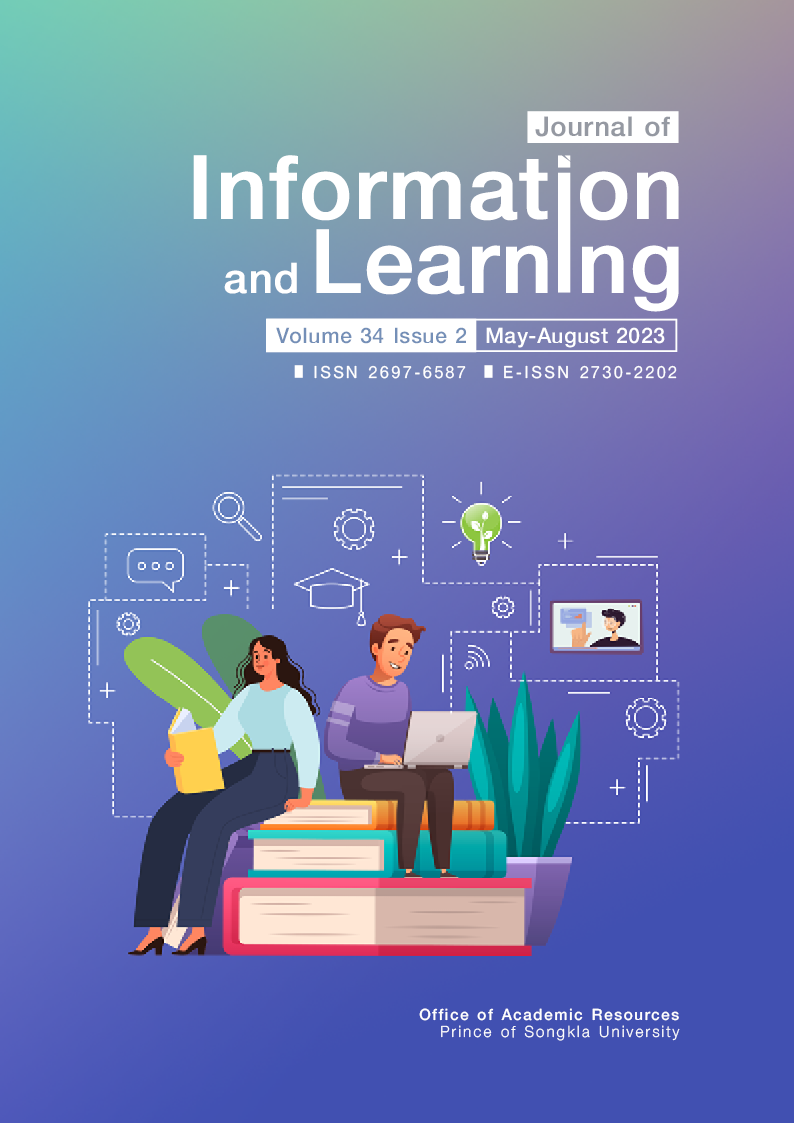A Study of Opinions on Emergency Remote Teaching With Technology-Supported Learning in a Course on Robot Technology, Artificial Intelligence, and Gaming Projects in Education for Undergraduate Students in Faculty of Education at Phuket Rajabhat University
Main Article Content
Abstract
The objective of this study was to present a survey of opinions on emergency remote teaching with technology-supported learning under the circumstances of the coronavirus disease 2019 (COVID-19). It was conducted through a survey of students’ opinions along with an analysis of learning outcomes of 29 pre-service teachers who enrolled in the course on Robot Technology, Artificial Intelligence, and Gaming Projects in Education as a case study. These students were studying in Semester 2/2021 of a computer education program at Phuket Rajabhat University. For the subject in question, its learning management was divided into two sections including knowledge about robots, and practical skills on electronic circuit connection, sensor device control programming, robot control programming and the practice of an instructional design on programming games integrated with learning resources in the community. The research instrument was an online questionnaire evaluating six areas of the emergency remote teaching including simplicity, accessibility, affordability, flexibility, empathy, learning outcomes and implementations. Statistics used in the research were percentage, mean, and standard deviation. Overall, the results revealed that the students agreed on the use of tools to support the classroom management with the mean score at 4.49 (SD = 0.49), and the analysis of the learning outcomes showed that a rapid change of learning methodology did not affect their learning outcomes both academically and practically.
Article Details

This work is licensed under a Creative Commons Attribution-NonCommercial-NoDerivatives 4.0 International License.
The Journal of Information and Learning is operated by the Office of Academic Resources, Prince of Songkla University. All articles published in the journal are protected by Thailand copyright law. This copyright covers the exclusive rights to share, reproduce and distribute the article, including in electronic forms, reprints, translations, photographic reproductions, or similar. Authors own copyrights in the works they have created as well as the Office of Academic Resources. The Journal reserves the right to edit the language of papers accepted for publication for clarity and correctness, as well as to make formal changes to ensure compliance with the journal's guidelines. All authors must take public responsibility for the content of their paper.
References
Aguilera-Hermida, A. P., Quiroga-Garza, A., Gómez-Mendoza, S., Del Río Villanueva, C. A., Avolio Alecchi, B., & Avci, D. (2021). Comparison of students’ use and acceptance of emergency online learning due to COVID-19 in the USA, Mexico, Peru, and Turkey. Education and Information Technologies, 26(6), 6823-6845. https://doi.org/10.1007/s10639-021-10473-8
Ahmed, V., & Opoku, A. (2022). Technology supported learning and pedagogy in times of crisis: the case of COVID-19 pandemic. Education and Information Technologies, 27(1), 365-405. https://doi.org/10.1007/s10639-021-10706-w
Bozkurt, A., & Sharma, R. C. (2020). Emergency remote teaching in a time of global crisis due to corona-virus pandemic. Asian Journal of Distance Education, 15(1), i-vi. https://doi.org/10.5281/zenodo.3778083.
Cahyadi, A., Widyastuti, S., & Hendryadi, H. (2021). Emergency remote teaching evaluation of the higher education in Indonesia. Heliyon, 7(8), e07788. https://doi.org/10.1016/j.heliyon.2021.e07788
Chang, G. C., & Yano, S. (2020, March 24). How are countries addressing the Covid-19 challenges in edu-cation? A snapshot of policy measures. Unesco. https://bit.ly/3rqObsW
Chang, H. Y., Wang, C. Y., Lee, M. H., Wu, H. K., Liang, J. C., Lee, S. W. Y., & Hsu, C. Y. (2015). A review of features of technology-supported learning environments based on participants’ perceptions. Computers in Human Behavior, 53, 223-237.
Ghamrawi, N. (2022). Teachers’ virtual communities of practice: A strong response in times of crisis or just another Fad? Education and Information Technologies, 27(5), 5889-5915. https://doi.org/10.1007/s10639-021-10857-w
Gopal, R., Singh, V., & Aggarwal, A. (2021). Impact of online classes on the satisfaction and performance of students during the pandemic period of COVID 19. Education and Information Technologies, 26(6), 6923-6947. https://doi.org/10.1007/s10639-021-10523-1
Harasim, L. (2000). Shift happens: Online education as a new paradigm in learning. The Internet and Higher Education, 3(1-2), 41-61. https://doi.org/10.1016/S1096-7516(00)00032-4
Iglesias-Pradas, S., Hernández-García, Á., Chaparro-Peláez, J., & Luis Prieto, J. (2021). Emergency re-mote teaching and students’ academic performance in higher education during the COVID-19 pandemic: A case study. Computers in Human Behavior, 119, 1-18. https://doi.org/10.1007/s10639-021-10473-8
Panigrahi, R., Srivastava, P. R., & Sharma, D. (2018). Online learning: Adoption, continuance, and learning outcome—A review of literature. International Journal of Information Management, 43, 1-14.
Pimentel, J. L. (2010). A note on the usage of Likert scaling for research data analysis. USM R&D Journal, 18(2), 109-112.
Solvie, P., & Kloek, M. (2007). Using technology tools to engage students with multiple learning styles in a constuctivist learning environment. Contemporary Issues in Technology & Teacher Education, 7(2), 7-27.
Tongliemnak, P. (2021, January 1). Samrūat phonkrathop COVID - sipkāo čhut plīan khrang samkhan khō̜ng kānsưksā lōk [Explore the impact of COVID-19, a major turning point in world education]. Equitable Educa-tion Fund. https://www.eef.or.th/article1-02-01-211/
Wayo, W., Charoennukul, A., & Kankayant, C. (2019). Online learning under the COVID-19 epidemic: Con-cepts and applications of teaching and learning management. Regional Health Promotion Center 9 Journal, 14(34), 285-298. https://doi.org/10.14456/rhpc9j.2020.18


